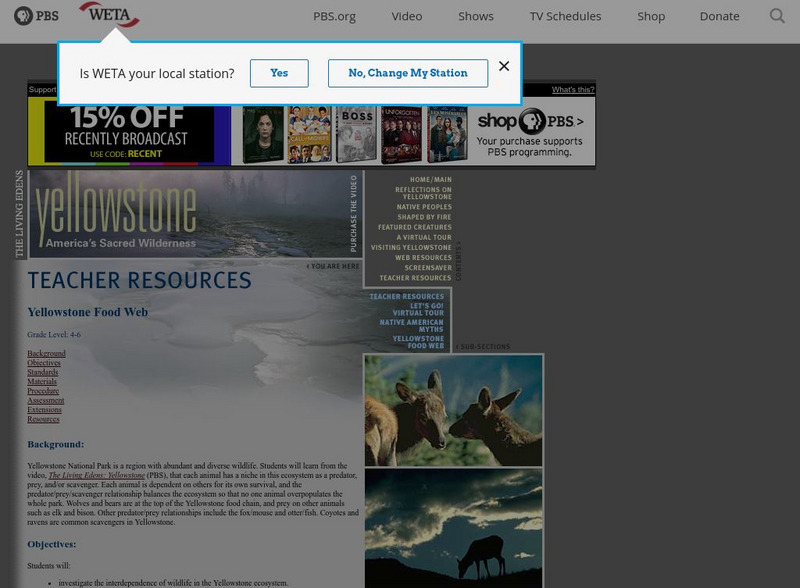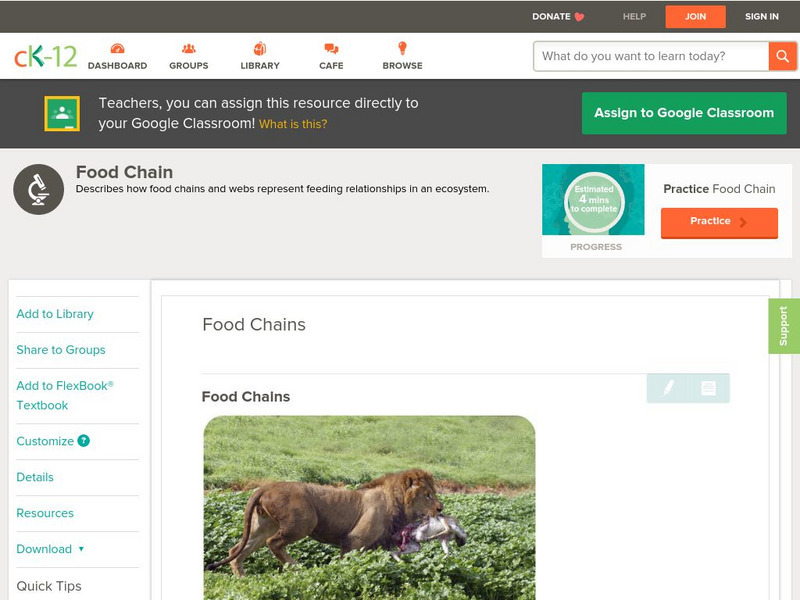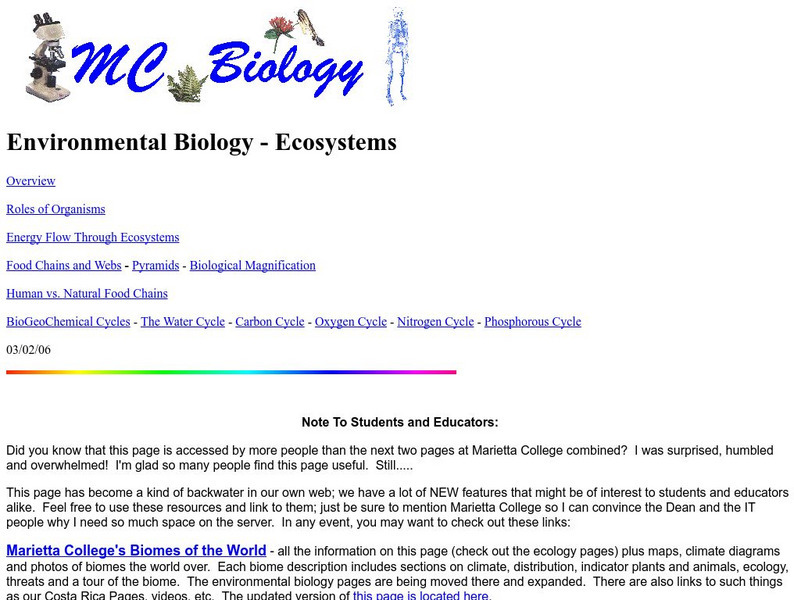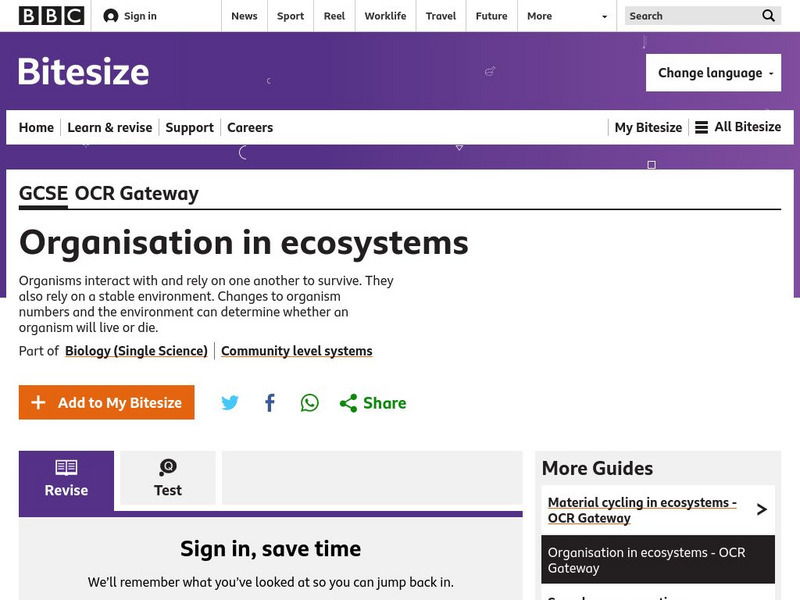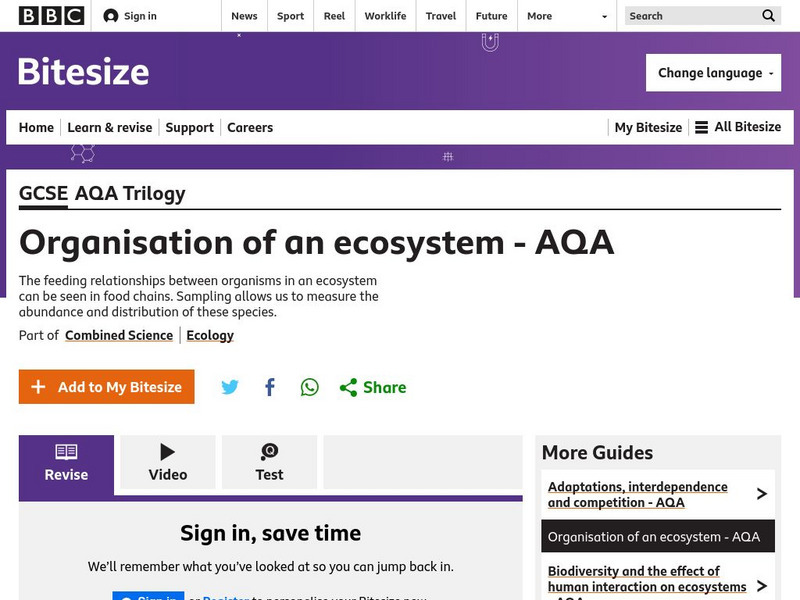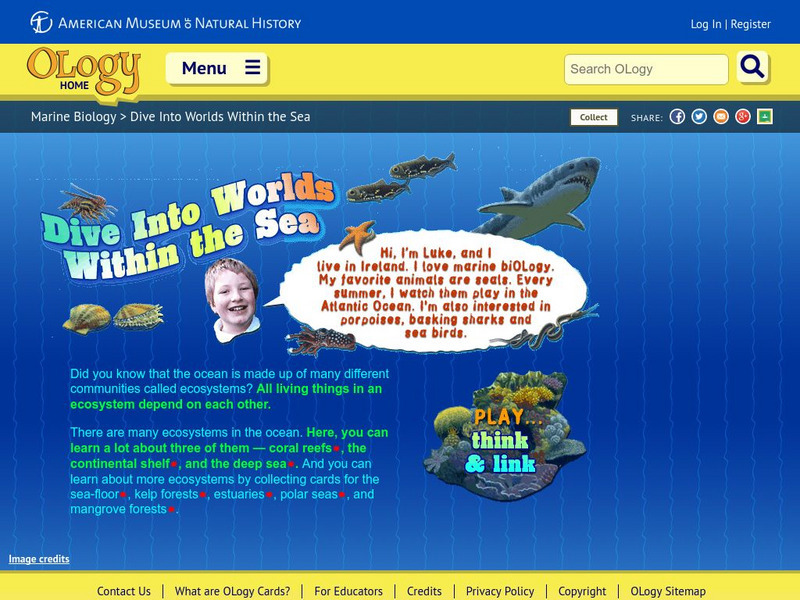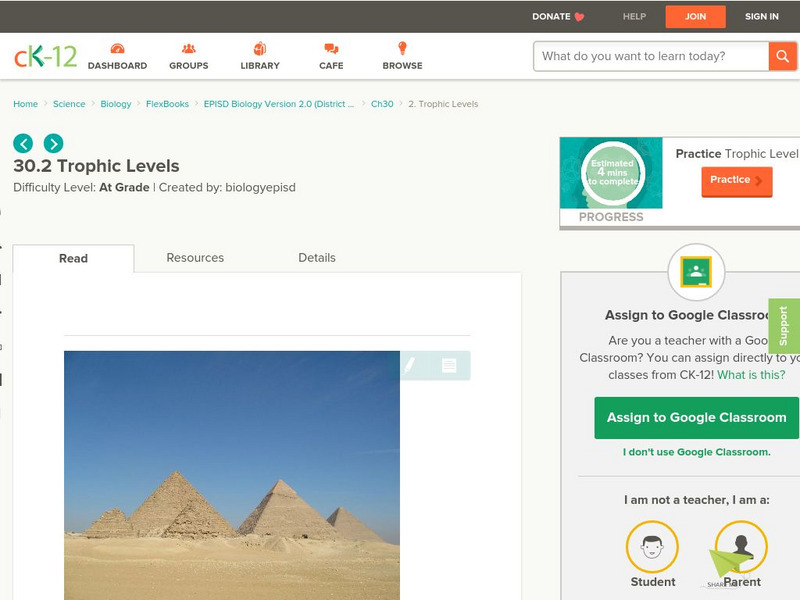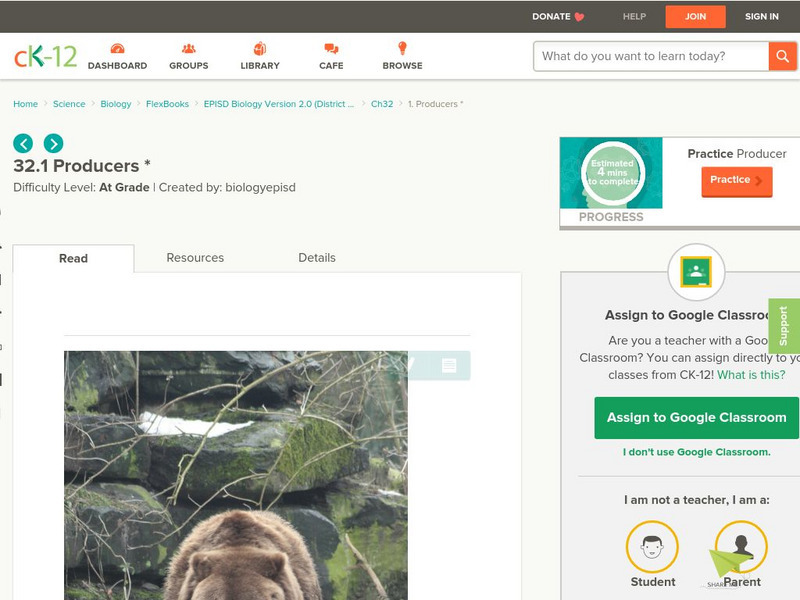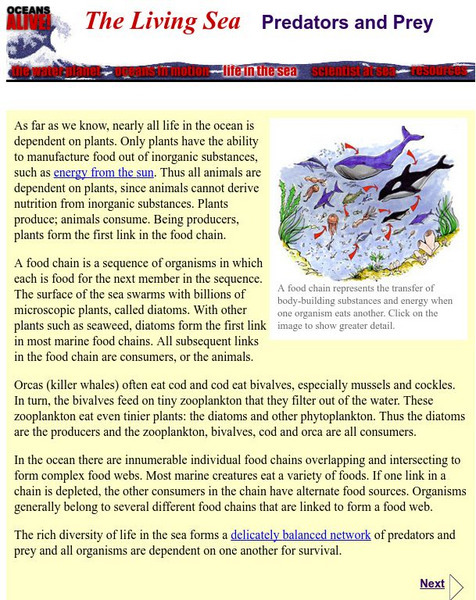PBS
Pbs Teachers:yellowstone: Yellowstone Food Web
Investigate the interdependence of wildlife in the Yellowstone ecosystem and draw an ecosystem showing the interdependence of life forms.
CK-12 Foundation
Ck 12: Biology: Food Chains and Food Webs
[Free Registration/Login may be required to access all resource tools.] Describes how food chains and webs represent feeding relationships.
CK-12 Foundation
Ck 12: Biology: Food Chains
[Free Registration/Login may be required to access all resource tools.] Describes how food chains represent feeding relationships.
Other
Marietta College: Ecosystems
Complete illustrated discussion of energy flow within ecosystems, including discussions of trophic levels, ecological pyramids, food chains and webs, biological magnification, and cycles.
CK-12 Foundation
Ck 12: Fifth Grade Science: Life Science: The Flow of Energy in an Ecosystem
A module that explains what an ecosystem is and how energy and matter move through them. Students will look at the different roles of plants and animals and at ecological relationships in food chains and food webs.
BBC
Bbc: Gcse Bitesize: Organization in Ecosystems
This lesson focuses on food chains in ecosystems, including levels of consumers, decomposers, and a list of common words used with food chains and their definitions. It also provides a link to an assessment.
BBC
Bbc: Gcse Bitesize: Organization of an Ecosystem Aqa
This lesson focuses on the organization of an ecosystem. The feeding relationships between organisms in an ecosystem can be seen in food chains. Sampling allows us to measure the abundance and distribution of these species. It provides...
Alabama Learning Exchange
Alex: Protect Our Planet Piece by Piece
In this lesson from "The Friends of Auntie Litter", (www.auntielitter.org), food webs and their significance will be explored. This lesson is one from the "Take Pride Statewide" series. *Lesson provided by Julie Danley and Pam Walston.
Utah STEM Foundation
Utah Stem Action Center: Great Salt Lake Ecosystem
This lesson plan provides an eight-day flow of educational activities in which students use the Great Salt Lake ecosystem to explore food webs and how changes in living and nonliving factors affect different populations.
Texas Education Agency
Texas Gateway: Organisms and Environments: Organisms Interactions
Learn about food webs, food chains, and organisms interactions in this interactive tutorial.
American Museum of Natural History
American Museum of Natural History: Welcome to Dzanga Sangha
Connect the dots to investigate three different habitats either the forest, bai or river of the rain forest. By connecting the dots students make a food chain to see how organisms in each habitat depend on each other.
American Museum of Natural History
American Museum of Natural History: Dive Into Worlds Within the Sea
Think and Link to investigate three different ecosystem either the deep sea, coral reef or continental shelf. By connecting the dots students make a food chain to see how organisms in each habitat depend on each other.
CK-12 Foundation
Ck 12: Episd: Trophic Levels
[Free Registration/Login may be required to access all resource tools.] Understand what trophic levels are and identify producers and consumers in a food web.
National Geographic
National Geographic: Marine Ecosystems and Biodiversity
A collection of three lessons where students learn about abiotic factors in marine ecosystems, about marine food chains and biodiversity, and about marine food webs and trophic levels. Includes handouts, website links, and a vocabulary...
OpenStax
Open Stax: Energy Flow Through Ecosystems
Understand how organisms acquire energy and how that energy is passed from one organism to another through food webs and their constituent food chains.
Annenberg Foundation
Annenberg Learner: The Habitable Planet: Ecology Lab
Create the parameters of your own ecosystem by choosing which producers and consumers live there. Visualize how the food web operates and species populations change. This simulator mimics the food web within a typical ecosystem and gives...
CK-12 Foundation
Ck 12: Episd: Producers
[Free Registration/Login may be required to access all resource tools.] Students will recognize and understand the role of producers in the food chain within different ecosystems.
Other
Digital Library for Earth System Education: Teaching Box: Seasonal Upwelling
A suite of lessons focusing on the process of upwelling. Inquiry-based exploration of seasonal upwelling includes marine food webs, food production in the ocean, wind-driven ocean currents, and seasonal changes in biotic and abiotic...
American Museum of Natural History
American Museum of Natural History: O Logy: Stuff to Do: Web of Life Game
Fun, interactive game that helps students identify interrelationships in an ecosystem. For six or more players.
Other
Segfl: Sebastian Swan: Pond Web
This interactive ebook "Pond Web" demonstrates a pond food chain. Students can click on the ? to find answers to questions posed in the text. Students are asked to retell the story using pictures provided at the end of the book.
Defenders of Wildlife
Kids' Planet: The Web of Life
The Web of Life is a story told by a common garden spider at this site from Kids' Planet. Learn about the food web, and the roles and relationships of every living creature.
OpenSciEd
Open Sci Ed: 7.4 Matter Cycling & Photosynthesis
This unit on matter cycling and photosynthesis has students investigating the idea that all food comes from plants.
Museum of Science
Museum of Science: The Living Sea: Predators and Prey
This Museum of Science page does an excellent job of explaining the importance of plants as producers in the sea. The food chain or food web has to start with the plants.
Other popular searches
- Food Chains Food Webs
- Food Chains and Webs
- Food Chains and Food Webs
- Food Chains, Food Webs
- Food Chains Webs
- Ecology Food Webs Chains
- Ocean Food Chains and Webs
- Food Chains/food Webs


